A few things have happened in the last month or so to put diversity in historical romance at the forefront of my mind. All of them came to a head when I was reading tweets discussing the recent post on SmarthBitches. So I went over and read it. It’s basically the same argument/discussion that I’ve seen kicking around Romancelandia since the oughts when I first joined. I’ve seen it called a chicken and egg syndrome: readers can’t buy what isn’t for sale, but I’m here to tell you, readers don’t seem to buy it when it is for sale. And while we may all bemoan this, that doesn’t change it.
Historical romance is very white, straight, cis, and upper-class. It’s also kind of like playing jenga. It’s really hard to remove one of those and not have the whole thing come crashing down. Why? Let’s take a look (hopefully without making judgments about readers or authors, which I’ve seen quite enough of lately).
Dukes sell. They just do, like it or not. A few authors have managed to make names for themselves by moving into the gentry (Carla Kelley and Rose Lerner spring to mind) and some authors are pulling off love stories among the lower classes (like Erica Monroe), but from what I’ve seen during my writing career, when you leave the ton behind, you lose a lot of the readers who want that extra soupçon of fantasy.
Books set outside of Georgian/Victorian England and Scotland are harder to sell. I honestly don’t know why this is, but even Ireland and France are hard, let alone Ancient Rome or Shogunate Japan. A lot of us thought (hoped!) that indie publishing would unleash a tidal wave of settings that would brush away Regency England’s chokehold on the genre. Didn’t happen. And every time a new historical TV show is a hit, I see a flurry of hope that the setting will crossover into publishing. But it never seems to. Thankfully, there are authors writing other settings (like Beverly Jenkins, Jeannie Lin, and Sandra Schwab), but those are labors of love. Readers vote with their wallets, and the majority of them vote for Georgian/Victorian England and Scotland (preferably with dukes).
Because the most popular setting is among the 18th and 19th century British ton, the most popular characters are by default Caucasian. There are ways to work in characters of other races/ethnicities (England certainly had free blacks, a Jewish population, Anglo-Indians, Indians, and Chinese), but outside of an Anglo-Indian character, it’s hard to get a non-Caucasian character into the ton. For example, the movie Belle radically changed her actual history to make her wealthy and accepted in a way that she wasn’t in real life. Why? My best guess was that her real life story wasn’t romantic enough. The best examples I can find for how she might have been viewed in her own time are in the works of Austen (Sanditon) and Thackeray (Vanity Fair), which both have wealthy prospective brides who are mixed race as Dido was. Austen treats it as a non-issue. Thackeray does not. Both of which fit with the changing ideas of race and class as depicted in the book White Mughals (which I highly recommend).
Straight and cis. Yep. See above. There are certainly ways to tell gay and trans stories in a historical setting. There are real world examples (Lord Hervey, the Chevalier d’Eon, possibly the Ladies of Llangollen, maybe Dr James Berry), and I’m glad to see these stories being told (e.g. KJ Charles and Cat Sebastian), but we’ve not yet reached a place where these books aren’t niche when it comes to readers (I’ve seen discussions about why some readers avoid these and it’s much the same as why they avoid roms about working class people: the nagging worry about security breaks the fantasy for them; so while a contemp LGBTQ rom works for them, a historical one doesn’t because the HEA never feels “safe”).
So, what does this all add up to? It adds up to authors wanting to make a living (which I’ve been told is an inadequate excuse; a statement with which I strongly disagree) and publishing being a risk-adverse business. When it takes months (or years, depending on the author) to write a book, purposefully writing one that isn’t “to market” is a risky choice, especially if this is how you support yourself. And it comes down to readers.
How does this play out in real life?
When I pitched my first series, c. 2004, I pitched a black hero for book three. I was told by agents and editors that it was a no-go. The profit and loss on it was too risky, especially since those sales numbers would haunt us forever and would probably kill my career (which is funny, since losing a slot at a certain Big Box store killed that pen name long before this book would ever have come out). I did squeeze in a half-Turkish hero (my lowest selling book to date) and I got roundly told that bi-racial characters were “cheating” (as someone who IS bi-racial, this still pisses me off to no end).
[As an aside, I’ve also seen authors’ attempts to diversify their series dismissed as “tokenism”. So I’m damned if I don’t include any diverse protagonist in my series, and damned if I do, but not to the (arbitrary) extent that pleases whomever is deciding these things. Please note, there was a long discussion of this at a recent conference and several authors flat out said they’d rather be dismissed with the faceless majority than paint a target on their back so they could be singled out for tokenism or fake-diversity. I sincerely doubt this is the goal those pushing for diversity wanted, but it’s the one they got.]
Back to me: When I brushed myself off and began pitching again, I always pitched that guy’s book. Agents and editors were suddenly talking about wanting unusual, stand-out books (c. 2008). Books with a different angle. Books with a hook. Books they could promote as DIFFERENT. You know what they meant? They meant maybe not a duke, but still duke-adjacent. Oh, they loved the younger sons angle, but could I throw in a secret society to make it all hang together? I wish I were joking.
Ok, so this time I put that black character IN the series. I was hoping I’d get fan mail asking for his book that I could show my editor. I never did. Not a single email or tweet. What did I get? Requests for very minor (white) walk-on characters. *sigh* When I submitted by my black fencing champion as the hero for one of the books, I got told they’d let me do an e-only novella for him. Not even a novella set with other authors who were also writing Georgian (which they had!). None of that came to fruition anyway, and I left NY, so his book is still sitting there on the back burner (though I have cover shot, so I’ve got that tucked away waiting). This is a story I really want to write, but to date no one has wanted to publish it and I’m honestly not sure readers will pick it up unless I’m very, very lucky. And yes, I have a plan to hopefully help my luck, but if I had to pay my bills with writing monies, I can’t say that this book would ever be written. I know that every hour I put into that book is an hour I might not get paid for; or at least not at the rate that I would get paid if I was writing a duke. But I’m lucky. I have a day job that pays my way and a stubborn streak that wants to write what it wants to write. So, eventually my fencing master will get his book and I’ll get to see if readers love him or if only I do.
So that’s my take. YMMV.

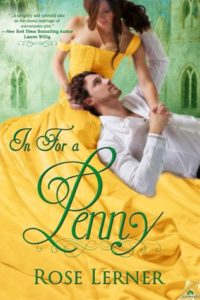
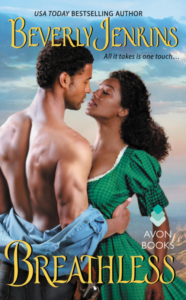
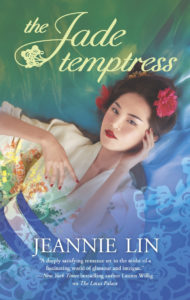
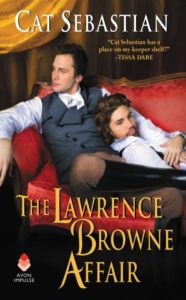
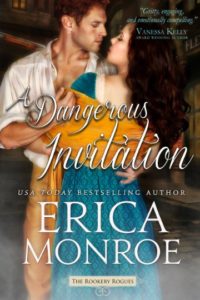
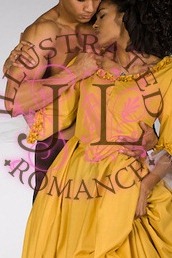
Yup. All of this. I wish I could say I agreed more eloquently, but right now I am so very tired of the constant arguments. I’ve given up even talking about it and I’ve mostly muted the conversations on social media because they go around and around with the same blame, shame, and accusations.
Me too, but it’s something I think about a LOT.
I’d definitely buy it! Not that that answers the concerns about building a career, as one person is not a “market.”
I think most of the people I interact with on Twitter would buy it, sadly, we don’t seem to reflect the larger market. I really, really wish we did, cause the books I highlighted here are some of my favorites and I’d like to see them get the sales and recognition they deserve.
I agree that many readers we interact with would buy heaps of these books… but…very hard to reach a wider market and make any serious money writing things outside the norm.
We have the same problem with Australian historical romances. Great stories but very hard to get readers to step away from the aristocracy in London.
I may be a unicorn as both writer and reader, but I would be *thrilled* to see more Australian historicals. I currently have a vintage Candace Proctor on my TBR shelf, that I dove on like a rabid wild animal when I saw it at a book swap. IMO, there aren’t nearly enough Australian historicals. Only one person here, not the entire market, but those of my kind do exist. We may be few, but we are here.
Sigh… especially re the damned-if-you-do-damned-if-you-don’t argument. I have thought about writing more diverse characters but I’m also very conscious that I need to do a lot deeper research to do justice to them. I think in the end it has to be what feels right for the author and will probably never feel right to all readers.
As a reader, I would like to see more diversity (I swear “Duke” in the title has the opposite effect on me than most readers). So thanks for sharing some of your favorites. I think there are more like me but connecting with such readers and making money at it is still a challenge, even with the more advantageous royalty structure of self publishing. But if you can do it, please go for it!
Thank you so much for sharing this. You’ve articulated concerns I’ve had with the ‘thou shalt be diverse’ commandment and it often comes from those who have never written a novel, let alone pitched it and had it accepted. I’ve just been through the mill trying to get interest in an ancient Rome title. I’ve never had so many lovely rejections in my life. Fortunately I’ve now found a historical publisher willing to take those risks.
Congrats! I love Roman settings (my godmother did four books set in Ancient Rome so I kinda grew up reading that setting).
I just saw an announcement by a historical author of a series with ten Dukes. In my head I’m like, too many Dukes. Dukes are rarer than you think. rarer even than genuine Greek shipping billionaires. Diversity is tricky. I write a lot of diverse characters in my as yet unpublished stories. They are probably not accurate. As a 55yr old white woman I have to use my imagination. I imagine they are like me but with different life experiences. Except if they are male in which case they are domestically challenged and a lot more muscular. Unless they can cook. And iron. I like a hero who cooks and irons. But not in a historical. Unless it’s a frontier romance in which case pork and beans are on the menu.
Scrathing my head over a ten duke series. All of an age in the same generation, I would presume? Too much for me, as well, and I am also among those with the opposite reaction to seeing “Duke” in a title these days. For me, especially with ten in one place, it falls under, “if everybody is special, then nobody is,” and becomes generic for “hot rich guy.” For some, maybe, it is, but, to me, it strips away what sets that particular rank of the peerage apart.
LOL! That would be nearly half the real number of dukes in the period!
Were there even that many? Now I gotta go consult a peerage.
Throwing kisses across the Big Pond and a continent because YES, so much this, to all of this. I’m glad I didn’t see the post at SBTB when it went live because I might have just lost it all over the post. I’d certainly like to know where all those masses of readers who want diversity in historical romance are when it comes to actually buying novels that are not Regency, not aristocracy, not completely white. Heck, I’m even disheartened about trying to get review sites to review my novels. I had exactly three takers for ARCs of The Centurion’s Choice, and one of those three reviews was mostly about taking a personal kick at me.
I don’t know where they are either. I wish I did.
Thanks for this post, it’s exactly what I’ve thought the last few times I have been book-shopping. I feel like I’ve read the stories 100 times before, nothing catches my interest, and I end up buying some non-fiction. 🙂 There ARE unusual gems, but they have to be dug for, and I feel like I’m not always finding them. Thanks for so many of the recs in this post.
Strangely, way back when I was doing trads for Signet they were much more accepting of unusual stories. (I had an Indian hero, a Jamaican heroine–not in the same story!–some tradesmen, etc, and they didn’t even bat an eye). It’s also easier in the historical mystery genre. Those things are a harder sell now in romance editor NY, where dukes are IT (almost impossible to vary). And indie authors need to make money, too, so I think that’s why we haven’t seen the hoped-for expansion of unusual titles. I hope this will change soon.
“nothing catches my interest, and I end up buying some non-fiction”
This is my experience as well, unfortunately! Once you tap out of the handful of #ownvoices authors and diverse reads in historical romance, you’re left waiting for the next release instead of being able to gobble up more–which you can easily do with Regency dukes, Scottish lairds, etc. It also doesn’t help that when I want a comfort read, I can grab a gazillion types of Regencies or whatnot, which increases the comfort level with continuing to read more books like it.
As Isobel so aptly stressed, hitting it big with diverse historical romance would be down to incredible luck (and part of that luck would have to be deliberate publisher buzz). As I look over my multicultural Edwardian romance series, I’ve been weighing my next steps: should I go all Duke of Wellington, or should I pray for the luck to strike? And what about my moving back and forth between POC and white protagonists? It’s a disheartening dilemma.
A multicultural Edwardian romance series sounds absolutely wonderful. There is so, so, so much more ground to cover in historical romance, than one small period of English history and one level of society, that it makes me angry how things have smushed into what feels like one small corner of a big, big world. The question is, what do we do about it? We do live in interesting times.
Yep. “What do we do?” really is the question. And I think each of us has to answer that for ourselves.
I’ve found I’ve been reading a lot more straight historical fiction lately. There’s quite a bit of Edwardian there (which I love), as well as other time periods (now that they’re moving on from all Tudor all the time, LOL)
Oh, and I meant to say, I know what readers mean when they say m/m historicals are hard to believe in a secure HEA, since it can be so very dangerous, but that is part of what I enjoy about them. The stakes are so high, and so real, and the fact that characters are willing to brave them for true love makes them that much more moving and intense….
Although the stakes don’t seem to have been impossibly high if you had money and power. Everyone seemed to know Lord Hervey was gay (or bi) and that he was having a love affair with Ste Fox. There were snide comments and such, but neither of them was ever legally punished for their known activities.
Yes, to all of this. I think the Irish question is kind of representative. People are always telling me to write an Irish historical, and I always tell them no. Why? Because there was never any peace or stability in Ireland. If people need a duke to represent stability, then historic Ireland is a sure loser. Besides, the only people who had stability were the British, which puts you right back into white, cis, dukes. I do think that one reason Regency is so popular is because there is at least the myth of stability and manners.
The closest I’ve come to being inclusive is diverse secondary characters. I even got away with having a soldier in love with my hero, which ended well when he found his own true love. But all you have to do is know Oscar Wilde or see Imitation Game to realize that the risk wasn’t like marrying into a different class. It was the risk of complete ruin if not death. Not. Very. Romantic.
I find these sigh stakes very exciting in romances. Edge of the seat stuff. And I’m surprised that only the idea of complete safety would be a full-HEA. Even in contemporary romance lots of things can go wrong down the line. As long as the characters are committed to staying together and in love, that’s all the HEA I need.
I’m sort of surprised at the comments moreso than the blog, but I don’t understand why this formula happened
a: I have tried to sell a diverse character
b: It didn’t sell
c: Therefore diverse characters don’t sell
Rather than thinking, these readers obviously exist and are very passionate, how do I reach them? I mean, you certainly don’t have to, but I really get turned off by being told it’s not worth the effort when that’s how I spend $ is…discouraging. Where’s the disconnect then and how we can bridge?
Maybe they sell for some people, but the overwhelming number of examples I’ve seen in the past decade aren’t encouraging. It may well be that they’re just not “our” readers and whatever they are reading and where they’re finding their books simply doesn’t overlap enough with our established audience. It’s hard to say. But it’s not like a lot of authors haven’t tried. Many of them repeatedly.
My series is full of diverse characters (poor, older, mixed raced, black, Jewish, Irish, Welsh, LGBT, you name it) and people really love them, but for me the hardest part is getting people to read outside the Regency period. The Southwark Saga is set in Restoration London – a mere 140 years before most Regencies – but it seems like people aren’t interested in reading that early, or think they’re Regency romance and get irritated that they don’t follow the same conventions. I know people want diverse books (I write them because I want to read them) and I really feel like we just need to keep trying until the market changes. It won’t if we don’t change it.
More power to you!
I am keenly aware of the heterosexual whiteness of most historical romance, and I am trying to think of ways to include LGBTQ+ and non-white characters in my WIPs. Thank you for pointing out the reality of how such characters are received by the publishing world. I will persevere, find ways to make my characters realistic in the eras I write about, and expect criticism for including them. Sigh.
I’ve never gotten any criticism (from readers) for including free blacks in my books. London had a large population of free blacks in the Georgian era, but they’re mostly confined to the servant/working class. There’s definitely room for them among the clergy, courtesans, actors, abolitionists, athletes, and artisans though. It’s just harder to sell those stories.
Publishers will always be reactive, basing their publishing decisions on what has worked in the past. They have rent and wages to pay on ever slenderer margins, and taking risks on a new concept doesn’t make sense.
They are like Procrustes, trimming or stretching their authors to fit the bed. I self-publish because I don’t want to be racked or have bits lopped off. I want to tell stories I like to read.
Which doesn’t address your point. Where are the readers? Those who take a risk on my books or Sandra’s or Jessica’s or yours write reviews that praise us for taking the risk of writing them. Perhaps discerning readers who want something different are a subset of the market, but the market is so gigantic that even 1 reader in 10 means potentially tens of millions of readers.
The problem isn’t the books or the lack of interest in the books. The problem is discoverability in a bazillion book market.
And no foul to those who lacke the time and the energy to step outside of what they know. ‘Duke’ becomes short-hand for ‘Sexy and powerful’, just as ‘Alpha Wolf’ does in fantasy, or ‘Billionaire’ in a contemporary. They are code words that indicate a safe comfort read.
Well said, Jude!
The problem is absolutely discoverability. Where is that audience? What/who are they reading now? How to you find them and make them aware of your books? And how much time do you have to do that task on top of everything else you’re already doing?
I think dukes are like billionaires in contemporary romance. Why settle for a millionaire/earl when you could have a billionaire/duke in your fantasy? Both types are equally scarce so it is quite ironic how often they show up in fiction. I love Georgette Heyer’s novels and I notice she limited the amount of dukes. However, I noticed equally that any hero who wasn’t a duke was very rich!
It was truly infuriating and disheartening to me to see mixed race characters described as tokenism, and a big part of why I had to leave the discussion entirely. Erasure is a thing, and it sucks. And that’s the nicest way to frame it. Do people even realize how offensive of an idea it is that you must have “pure” blood to be a diverse character?
I have no idea, but I’m right there with you!
This was freaking brilliant. Thank you, Isobel.
My historicals involve ordinary people, as well as minority characters, and they did fairly well back in the day, but not as well as stories filled with dukes. I find the lives of the elites so much less interesting than the lives of everyday people. (How many dukes ever existed in Great Britain at one time? Does anyone know? Not many.)
You’re right about the “damned if you do/damned if you don’t.” One of my I-Team stories has a Navajo heroine, and it didn’t do as well as the other I-Team books. After it was released, I got a letter from an I-Team fan asking me why I never wrote stories with interracial couples. Um… I did, but I guess in that reader’s mind, “interracial” means only black and white.
The success or rise of indie publishing has proven a lot of things to me about the romance market, but I’m going to keep most of them to myself. Maybe we can talk about them at RWA 2018, which is coming to Denver. (Hope you’ll be there.)
That Navajo heroine is my favorite of yours! In fact it’s the first book I ever ready by you because you pitched it to me at a room party at RWA, LOL!
And yes, I am absolutely planning on attending RWA in Denver!
Wow. Just wow. This is a powerful statement Isobel. I don’t know that I can add anything to this excellent discussion except I refused to submit to damned if you do/ damned if you don’t. I will continue to write what I write. I may never be a best seller, but if my stories hit their own niche market, God bless those readers.
As to me I will continue to read books by folks who write from their own ethnicity as well as books by authors who, from an abundance of their own humanity, take chances with their writing. (Jessica Cale, do you hear me?)
Phew. Because I love your books. And I’m hoping for a Grandchildren of Empire story with your little girls from The Reluctant Wife. After growing up in England, the illegitimate children of an English gentleman and his Indian housekeeper, they’ll come of age in the mid-19th Century.
I hear you, Caroline! I love your books, too. Please don’t ever stop writing the way you do. Much love xoxo
I fully support authors making whatever choice works for them. I’m certainly planning on writing my black fencing master’s book. I’m also noodling about with a Georgian F/F idea.
This was very interesting to read, because I’m working on my first Regency historical, and my American hero has a half-brother who’s a freed slave and travels with him to England for a better life than he could have had in America at the time, because why the eff not. I’ve fallen in love with the character (because he is awesome) and he will be the hero of my next book.
It’s good to know ahead of time that even if I manage to find a publisher, they’ll probably freak out at the thought of a mixed-race hero (and just wait until I tell them that my proposed heroine would be half-Indian!) Maybe self-publishing will be the way to go after all …
(For the record, I am very white, as confirmed by AncestryDNA, but I also get tired of nothing but stories about white aristocrats.)